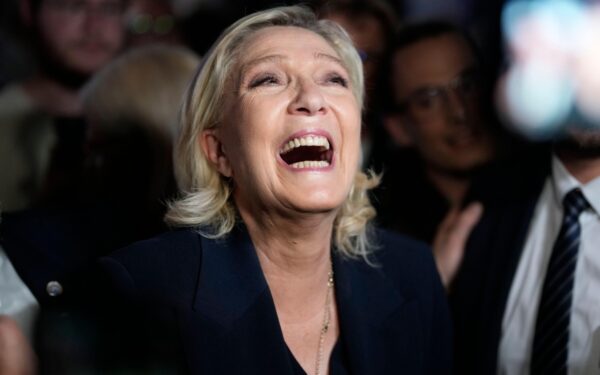Liz Truss and her Russian counterpart Sergei Lavrov have both arrived in Delhi today in competing efforts to strengthen ties with Narendra Modi, who is choosing to sit on the fence over the war in Ukraine.
Truss, the Foreign Secretary, will be hoping to exert pressure on India’s Prime Minister to condemn Russia’s invasion of Ukraine – something Modi has refused to do so far. Lavrov, meanwhile, will push for closer trade links with Delhi to reduce the bruising impact of Western sanctions.
India has a legacy of foreign policy neutrality. For decades after independence, it was a leader of the “non-aligned movement” – a position fashioned during the Cold War in which states in the developing world refused to side with either the Western or Eastern blocs.
To date, India has abstained from all of the UN Security Council votes on the Russia-Ukraine war.
Joe Biden has criticised India’s “somewhat shaky” support for Ukraine – which lies in stark contrast to the other countries in the “Quad”, an Indo-Pacific group aimed at pushing back against China. The other members – the US, Japan and Australia – have all imposed heavy sanctions on Moscow.
Others have gone further and accused Modi of actively siding with Putin.
Why is India so reluctant to jeopardise its relationship with Russia?
Moscow and Delhi have a long history of strong diplomatic, military, economic and cultural ties. And they have backed one another on contentious international issues.
Russia’s support for India over Kashmir has been unrelenting. In 2010, Putin reaffirmed his pro-India stance on Kashmir when he signed the “Special and Strategic Partnership” and, in 2019, after Modi’s government faced international condemnation for revoking Jammu and Kashmir’s special status, Russia insisted this was an “internal matter” for India.
Moscow’s stance on Kashmir may explain why large swathes of the Indian public appear sympathetic towards the Kremlin, too. Hashtags like #IStandWithPutin and #IStandWithRussia have been trending on Indian social media.
Delhi has repeatedly lent Moscow support on the international stage. In the 2000s, it voted against a UN Human Rights Commission resolution condemning Russia’s “disproportionate use of force” in the Chechen war. In 2014, it abstained from a resolution condemning Russia’s invasion of Crimea and, in 2020, voted against another resolution condemning human rights violations in Crimea.
For its part, India relies heavily on Russia for weapons – with roughly 70% of its military hardware imported from Moscow. What’s more, Modi may well feel he cannot afford to fall foul of Russia at a time when Putin is cosying up to Xi Jinping. He will be fearful of Moscow siding with Beijing during India-China territorial conflicts.
At present, India has an economic incentive to appease Lavrov and ramp up trade with Moscow. In fact, Delhi is already taking advantage of reduced competition in Russian markets: earlier this month, it agreed to import three million barrels of heavily discounted Russian oil.
At the same time, India doesn’t want to jeopardise relations with the West. It has worked hard in recent years to strengthen ties with the US and to establish its place in the Quad.
As Somdeep Sen, Professor of International Development Studies at Roskilde University points out: “India is experienced in maintaining a needs-based partnership with pariah states. It did so with Iran, for example, despite mounting pressure from the US.” But as Putin’s brutal war grinds on, maintaining a middle-ground will become increasingly difficult.





